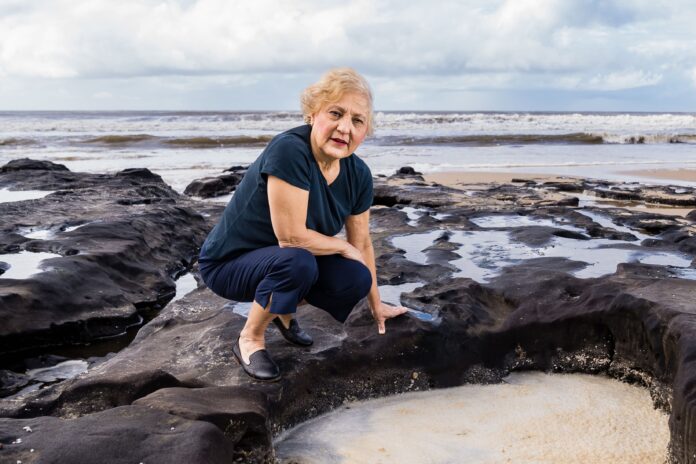As ex-Tropical Cyclone Alfred whips up sea foam along the coastline, a University of the Sunshine Coast microbiologist warns these “bacteria smoothies” may have more harmful pathogens than a sewage treatment plant.
UniSC Associate Professor Ipek Kurtboke said she was horrified to see footage of people playing in thick, sticky sea foam on the Gold Coast.
Her message was clear to people and their dogs: stay out of it if you don’t want to risk harming your health.
Research published by Dr Kurtboke with PhD student Luke Wright found the majority of bacteria isolated from sea foam sampled on the Sunshine Coast contained pathogens closely related to those found in sewage treatment plants across the world.
“It harbours bacteria that is far riskier to public health than previously thought,” she said.
Thirty-two strains of Nocardiae, a group of bacteria known to cause human and animal infections in skin, lungs and the central nervous system, were isolated from the near-shore sea foam.
“The public needs to be warned. Even after this cyclone is over, our beaches will carry the pathogen,” said Dr Kurtboke, an internationally renowned environmental microbiologist invited by several countries late last year to present talks on natural marine pollution.
“The public health risk relates to exposure to aerosols generated by the foam as well as direct contact through a wound. To stay safe, do not swim or play in the foam, or breathe near it.”
The findings also revealed the presence of antibiotic-resistant species among the isolates.
She said Nocardiae were usually found in foaming events at sewage treatment plants, where they thrived in excess oil and grease.
“While these natural bacteria are commonly found in soil, water and decaying vegetation, they are opportunistic pathogens and can cause serious disease such as nocardiosis in people and animals with weakened immune systems,” she said.
The PhD research of Mr Wright was co-supervised by UniSC Associate Professor Mohammad Katouli, an expert in antibiotic-resistant bacteria.
Dr Kurtboke, who is president of the World Federation of Culture Collections, was sought by foreign media and professional organisations in 2021 to provide expertise on the biggest ever outbreak of sea foam in the Marmara Sea, which threatened industry as well as the environment.
She recently edited the book Actinomycetes in Marine and Extreme Environments to communicate the importance of finding novel antibiotic producing actinomycetes in extreme and marine environments in the light of molecular advances.





